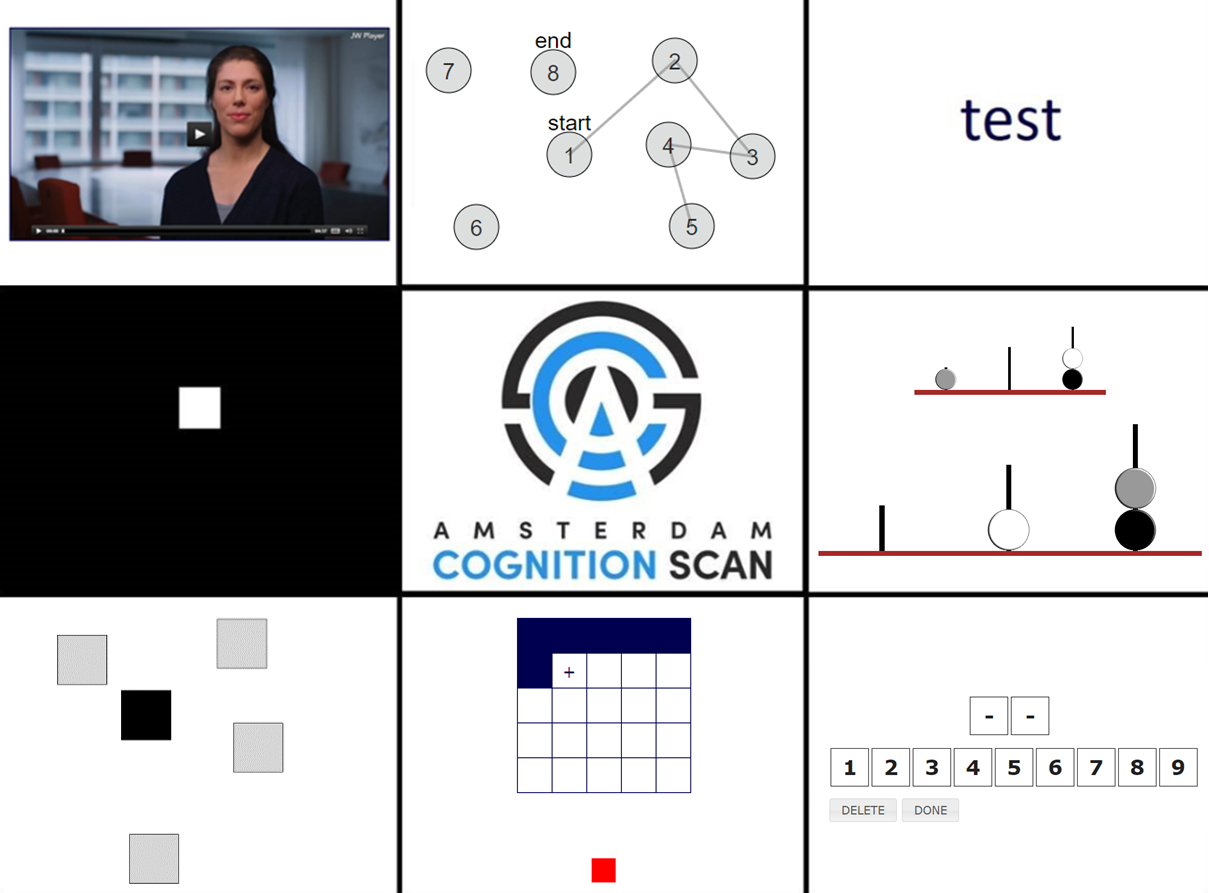Background
During the last decade, online computerized testing has been increasingly used to assess cognitive functioning. Online tests are more time-efficient, user-friendly and cost-efficient than traditional tests. However, prior online tests lacked proper adaption to the unsupervised setting, adequate psychometric properties, and normative data.
To overcome these obstacles, researchers from the Netherlands Cancer Institute, University of Amsterdam and VU University Amsterdam (ACS consortium) developed - in collaboration with NeuroTask BV, a company specializing in providing platforms for online cognitive testing – the Amsterdam Cognition Scan (ACS): a validated neuropsychological test battery, specifically designed for unsupervised online assessment.
The goal of the Amsterdam Cognition Scan (ACS) is to measure various cognitive functions in adults (ages 18 to 89) for reasons of data collection in research settings. Originally, the ACS was designed for research within the field of oncology, but because it measures a variety of cognitive domains, it is equally suitable for cognitive studies in other fields.
The battery is based on seven well-established traditional neuropsychological tests, which were chosen to detect dysfunction throughout the spectrum of cognition, including the domains attention, information processing speed, learning and memory, executive functioning, and psychomotor speed.
The goal was to develop online tests that measure the same cognitive constructs as the traditional tests. Therefore, the original test design is being emulated as much as possible, although some minor adaptations were needed due to the online setting. These involve mainly stimulus presentation and response mode.
